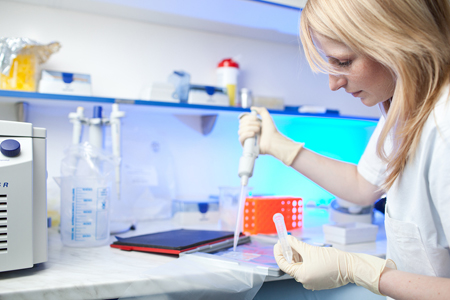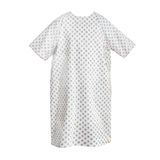The Garvan Institute of Medical Research's work on antibodies in health and disease has been given a shot in the arm, with the announcement that the National Health and Medical Research Council (NHMRC) has awarded a 5-year Program grant to researchers in its Immunology Division. Funding for the Program will begin in 2017.
The research teams, led by chief investigators Professor Christopher Goodnow, Professor Stuart Tangye, Professor Robert Brink and Associate Professor Daniel Christ, will work together to improve the diagnosis and treatment of antibody-associated diseases and to transform how antibodies are developed into therapies.
Antibodies are remarkable proteins in being able to recognise, and bind to, other molecules with exquisite specificity. A cornerstone of how the immune system functions, antibodies bind specifically to non-self molecules ('intruders' that do not belong within the body). This is why the formation of antibodies is the key step in a successful vaccination – and why disorders of antibody production can lead to autoimmune disease (where the immune system abnormally targets the body's own tissues) and sometimes to immunodeficiencies.
In recent years, antibodies have become widely used as therapies for cancer, autoimmune disorders and other diseases. Humira® (a treatment for rheumatoid arthritis, and one of the world's bestselling drugs) and Keytruda® (an anti-melanoma therapy) are key examples of monoclonal antibody drugs. However, major technical issues still remain in the formulation of antibodies for therapeutic use
Research covered under the NHMRC Program grant will be a wide-ranging exploration of the role of antibodies in health and disease and their development as therapeutics. The Program's strategy has three overarching aims:
- To understand why immunisation succeeds – and why it sometimes fails;
- To develop new approaches to the treatment of autoimmune disease; and
- To invent better strategies for producing new antibody-based therapies.
Prof Christopher Goodnow, who will lead the Program team, says, "We are delighted that our bid for NHMRC funding for this important Program has been successful.
"Antibody research has already paid huge dividends to society, from eliminating a huge toll of infectious disease to the development of drugs that combat cancer and chronic disease. However, these were just the first beats of what is set to become a roar. Strategically, it is excellent news that Australia is investing at the upswing of the 'antibody century'."








